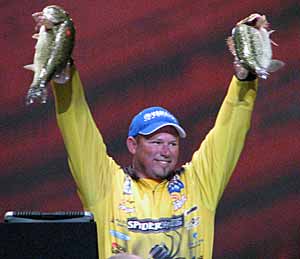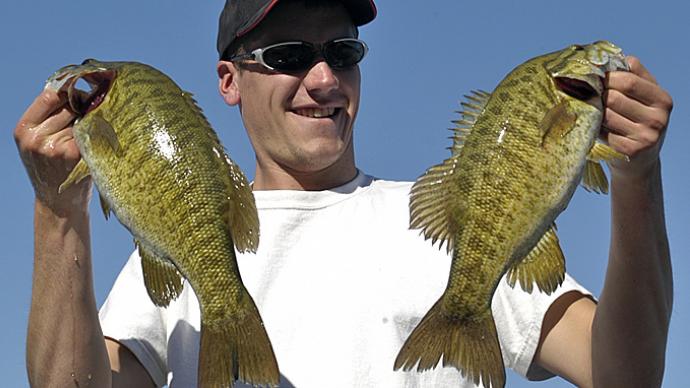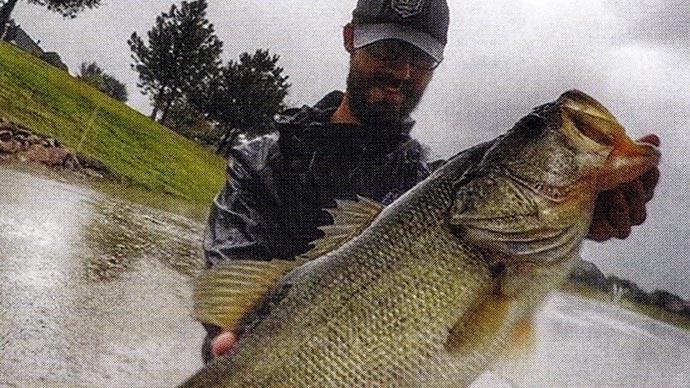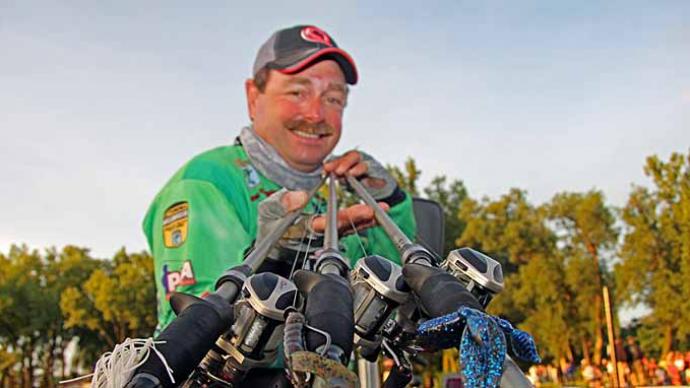
What most tournament anglers already know, and future tournament anglers will quickly learn, is sponsors can help make an angler a champion. But don't get me wrong, having a sponsor will not instantly make you a better angler. However, they will make it possible for you to compete in the costly world of professional bass fishing with less financial stress. An effective sponsorship contract will allow anglers to spend more time focusing on skills needed to succeed rather than how they will pay the rent. Just don't fall into a long-term agreement that is going to benefit your sponsor greatly and only enable you to wear a cool-looking patch on your shirt and have a few free lures in your box.
Some of you may wonder what a sponsor is and why it is crucial to competitive bass anglers. Sponsors provide anglers with anything from free or reduced-price products up to substantial amounts of money. Before you go and get too excited, they don't give you this stuff out of the kindness of their hearts. They expect you to go out and promote and often sell their products in addition to being very successful from a fishing standpoint. Sponsorship contracts are also an important reason major tours' payouts are so substantial. Big corporations spend several million dollars a year to get their name and logos in front of consumers.
One of the most important for the business is determining what you can do to increase its market share. Market Share is the percentage of a company's total consumers in a particular region, state, city, etc. For example, if there are 100 total consumers in a town and XYZ Company has 20 customers, their market share is 20%. Companies are always trying to increase their market share because an increase typically represents higher earnings. If you can convince a company that you can increase their market share at a relatively low cost, there is a good chance that the company will take you up on your offer.
Another helpful idea is to develop a skills inventory, which lists all the attributes you have that may be of value to the company. For example, suppose you are a tournament director. In that case, you write a weekly article for your local paper, and you have a local outdoors show, or just about any other method you can think of that you can use to promote the company. Once you make this list decide how to tell the company the benefits of these attributes. The more you can differentiate yourself from the other ten thousand people asking for the same sponsorship dollar, the more successful you will be.
The next step is evaluating companies to find sponsors that fit your style. Do not simply contact every single company in the business directory of your local phone book. It is common knowledge that representatives from various companies communicate regularly. So if you send a proposal letter to Lure Company X and nearly the same letter to Lure Company Y, there is a chance that your name might be mentioned in a conversation between the two companies. Essentially this will result in you not getting an agreement from either company.
Begin with companies whose products you use and are very familiar with. It will be a great deal easier to promote a product you believe in. Product expertise is another precious asset. The more you know about the various product lines available from your sponsors, your promotional activities will be more effective.
I will give you a little advanced notice when contacting large lure manufacturers or any large companies in general: Prepare yourself for the word NO. These companies receive thousands of letters per year from people just like you. Do not let this discourage you. Keep on soliciting other companies, and eventually, it will all work out.
Approach local companies such as the dealership where you bought your truck or boat. Often, they will pitch in a bit of cash for an entry fee or two. Before contacting a company and asking them for sponsorship, do your homework. Find out as much information as you can about the company. I have totaled up the number of retail outlets one company has in each state that I will compete in during the season. My main objective was to show that I would be in locations that would allow me to communicate with members of the company's target market. By doing so, I would provide a personal approach to the company's current marketing activities and, in turn, increase sales at these retail locations.
Do not attempt to get sponsored by multiple companies that produce similar products. If a hard bait company sponsors you, it should be your only hard bait sponsor. First of all, most sponsorship contracts prohibit such dealings. It will also reduce your credibility to the public. You can not promote one product one week and another the following week. Consumers can see right through fictitious sales claims.
Once you have successfully finalized a couple of agreements with companies for sponsorship, you have to begin working your butt off. From the moment you sign a sponsorship contract with a company, you, in a sense, work for that company.
When I say "work" for that company, I do not mean that you are a regular employee who punches a time clock, gets a weekly paycheck, and has company health insurance. What I mean is you made a legally binding business agreement with the company to promote their products or services, and you better keep your end of the arrangement, or you will find yourself losing sponsors in a hurry. It would help if you did everything you promised the company and often more.
Look at these sponsorship agreements as long-time partnerships. You will not have to go through all the proposals and such every year by doing this. It will be much easier to stay with a company if you can show them how they have benefited from your activities as a spokesperson.
Document all your actions and send frequent updates to the company detailing your activities. If you get an article written about you in the paper or a magazine and mention your sponsors, send them a copy. You do not want them to forget who you are. Most companies will require you to send them quarterly updates. Name recognition is a huge benefit for you and your sponsors.
With the tighter corporate budgets and increasing payouts in professional bass fishing, it is essential to understand business activities and how to use them to your advantage. I firmly believe that you will be ten steps ahead of the pack if you go to college and get a degree. My degree major was Business Management and Marketing. Although not directly related to the fishing industry, I viewed the courses I took from different angles until they related to fishing. It can also be beneficial to get experience in retail sales. Even if it is simply working part-time at your local Wal-Mart in the sporting goods department, you better understand customer relations, consumer buying habits, and the principles of salesmanship.
This article was designed solely to help individuals understand the business side of bass fishing. The information is intended to be a basic guideline and not the only "right" way to approach potential sponsors. The individual needs and results will vary, and your approach should be adjusted to best suit your objectives.




